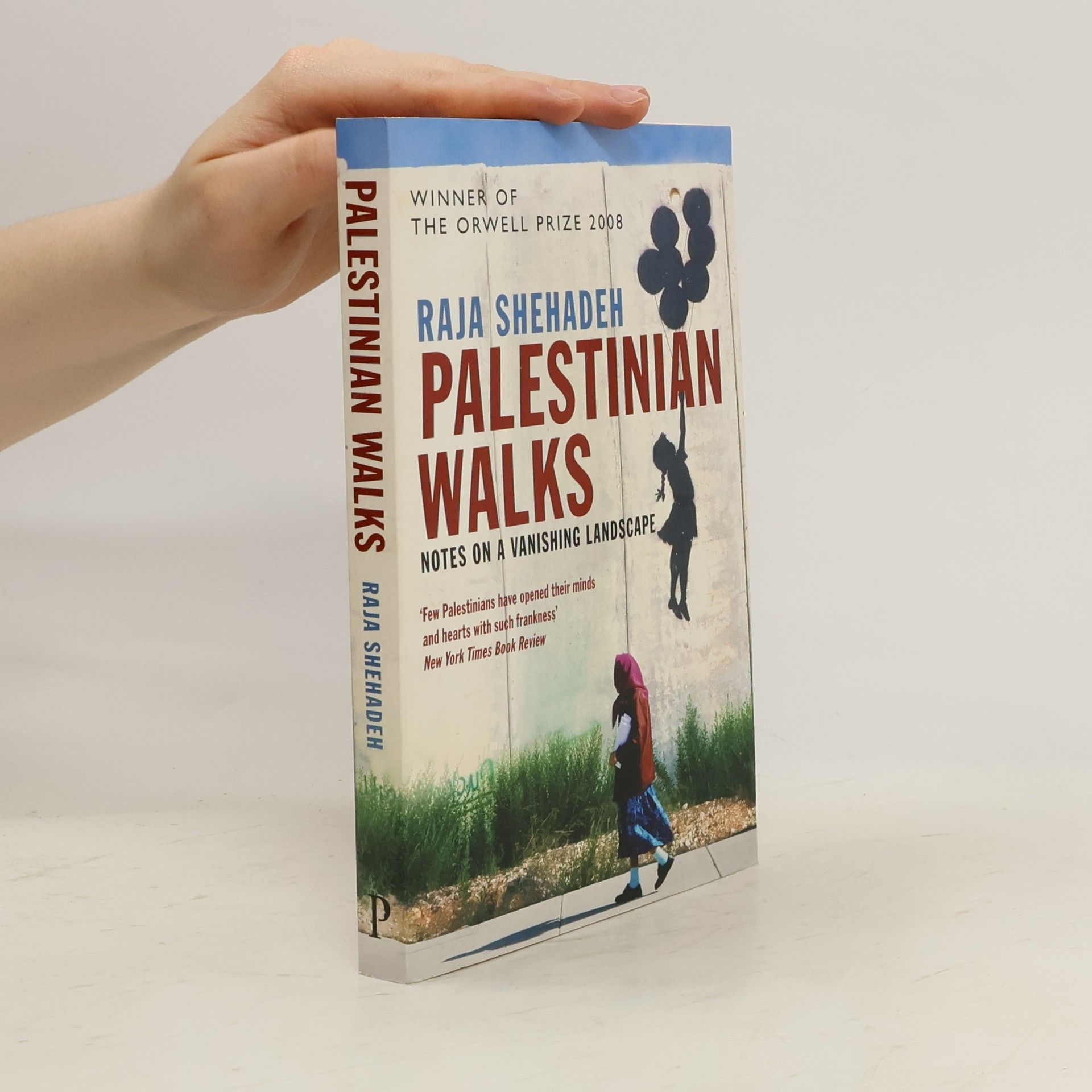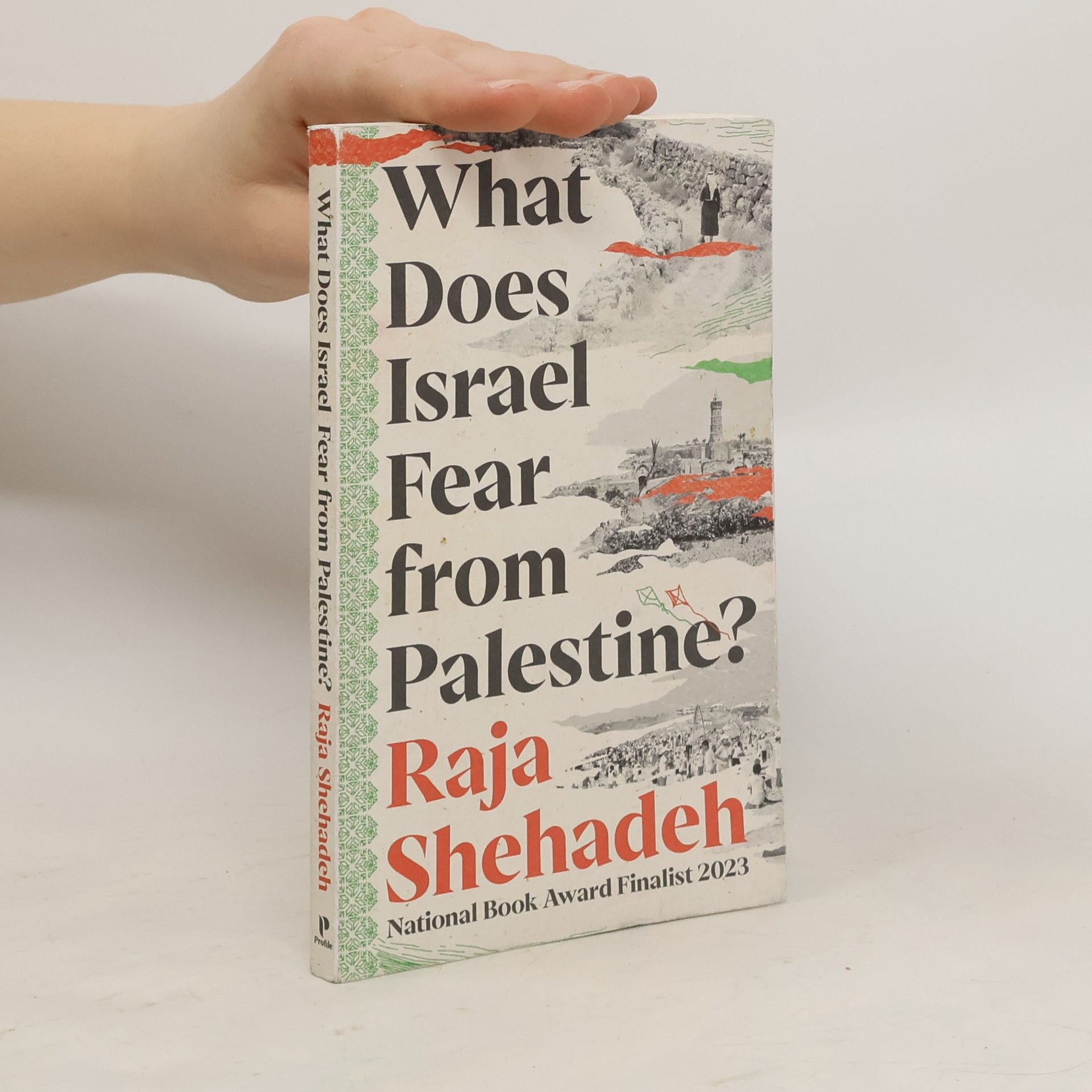When The Bulbul Stopped Singing
- 160pagine
- 6 ore di lettura
A diary of life under siege in Palestine, from the Orwell-prize winning and National Book Award-longlisted author and human rights activist
Raja Shehadeh crea narrazioni che offrono una lente distintiva e impressionante attraverso cui osservare realtà complesse. La sua scrittura si addentra nelle intricate connessioni tra luogo, memoria e identità, impiegando uno stile preciso e analitico. Il lavoro di Shehadeh è riconosciuto per la sua profondità intellettuale e il suo avvincente approccio narrativo. Incoraggia i lettori a confrontarsi con profonde domande sul mondo attraverso la sua prosa riflessiva.






A diary of life under siege in Palestine, from the Orwell-prize winning and National Book Award-longlisted author and human rights activist
The book offers a profound critique of Israel's approach to Palestine, emphasizing the urgent need for equality and partnership in the pursuit of peace. It highlights the consequences of neglecting Palestinian rights, portraying the situation as a struggle against systemic injustice rather than a mere political conflict. Through this lens, the author calls for a reevaluation of policies and attitudes to foster genuine dialogue and reconciliation.
When the author first started hill walking in Palestine, in the late 1970s, he was not aware that he was travelling through a vanishing landscape. Recording how the land felt and looked before various calamities, this title attempts to preserve, at least in words, the Palestinian natural treasures that many Palestinians never know.
It is often the smallest details of daily life that tell us the most. And so it is under occupation in Palestine. What most of us take for granted has to be carefully thought about and planned for: When will the post be allowed to get through? Will there be enough water for the bath tonight? How shall I get rid of the rubbish collecting outside? How much time should I allow for the journey to visit my cousin, going through checkpoints? And big questions too: Is working with left-wing Israelis collaborating or not? What affect will the Arab Spring have on the future of Palestine? What can anyone do to bring about change? Are any of life's pleasures untouched by politics?
Raja Shehadeh reflects on ageing, failure, the occupation, and the changing face of Ramallah.
A subtle psychological portrait of the author's relationship with his father during the twentieth-century battle for Palestinian human rights.
Focusing on the historical and personal journey of his great-uncle Najib Nassar, an Ottoman journalist, the memoir intertwines family history with the broader narrative of Palestine's struggles for freedom. Raja Shehadeh meticulously traces Najib's escape from occupied Palestine, revealing the stark contrasts between past and present. The book delves into the erasure of villages and identities, while offering a poignant reflection on the ongoing quest for liberation in the Jordan Rift Valley, ultimately suggesting a glimmer of hope for a future free from oppression.
"Provides a rare historical insight into the tragic changes taking place in Palestine"--Jimmy Carter.
Exploring hidden and neglected memorials in historic Palestine, this book reveals the significance of these sites in understanding the land and its diverse inhabitants. It delves into the rich history and cultural narratives of the region, offering insights into the complex relationship between the people and their environment, as well as the impact of historical events on their identity. Through this journey, it highlights the importance of remembrance and the stories embedded in the landscape between the Mediterranean Sea and the Jordan River.
Aziz Shehadeh war in seinem Leben vieles: engagierter Anwalt, widerständiger Aktivist, einer der ersten und furchtlosesten Verfechter der Zwei-Staaten-Lösung und politischer Gefangener. Und er war der Vater des Bestseller-Autors Raja Shehadeh. In jungen Jahren war Raja noch nicht in der Lage, den großen Mut seines Vaters zu erkennen und dieser wiederum sah sich nicht im Stande die Ambitionen des eigenen Sohnes zu würdigen. Als Aziz 1985 direkt vor seinem Haus ermordet wird, verändert dieses Ereignis das Leben seines Sohnes für immer. In seinem eindringlichen Memoir verarbeitet Raja Shehadeh die komplexe Beziehung zu seinem Vater, die bis dato ungeklärten Umstände von dessen Ermordung und liefert zugleich eine unvoreingenommene Historie der Besatzung Palästinas. Eine berührende literarische Annäherung an einen Mann, der sein Freund hätte sein können, und ein Buch, das sowohl von persönlicher als auch gesellschaftspolitischer Relevanz ist und zu Recht auf der Shortlist für den National Book Award stand.